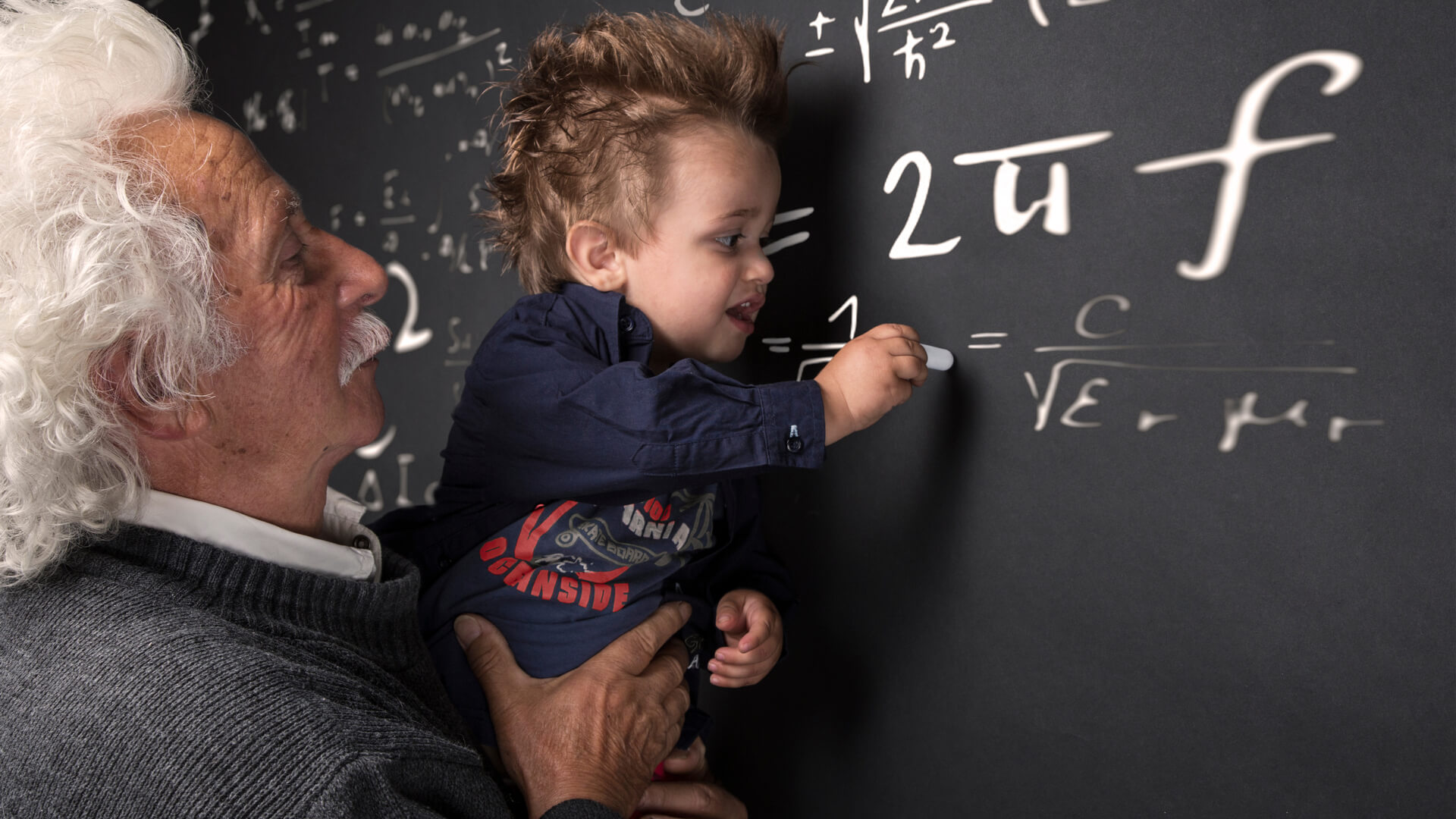
Einstein Syndrome is a term coined by economist Thomas Sowell to describe children who experience delayed speech but show exceptional analytical abilities. These kids often start talking later than their peers but eventually catch up and surpass them in vocabulary and comprehension. Einstein Syndrome is named after Albert Einstein, who reportedly didn't speak fluently until around age four. Parents and educators sometimes worry when children don't hit speech milestones on time, but this syndrome suggests that late talking can be a sign of advanced cognitive skills rather than a developmental issue. Understanding Einstein Syndrome can help alleviate concerns and highlight the unique strengths of these remarkable children.
What is Einstein Syndrome?
Einstein Syndrome refers to children who experience delayed speech but show exceptional abilities in other areas. Named after Albert Einstein, who reportedly didn't speak until age four, this phenomenon challenges conventional views on child development.
-
Albert Einstein himself didn't speak fluently until he was around four years old. Despite this, he became one of the greatest physicists in history.
-
Thomas Sowell, an economist, coined the term "Einstein Syndrome" in his book "Late-Talking Children." He noticed a pattern among late talkers who later excelled in analytical fields.
-
Children with Einstein Syndrome often show advanced analytical or musical skills. They might solve puzzles quickly or play instruments well before they start speaking.
-
Boys are more likely to exhibit Einstein Syndrome than girls. This mirrors broader trends in speech development delays, which are more common in boys.
-
Family history plays a significant role. Many children with Einstein Syndrome have relatives who were also late talkers but later excelled academically or professionally.
-
High IQ is a common trait among children with Einstein Syndrome. These kids often score above average on intelligence tests once they start speaking.
-
Strong-willed personalities are typical. These children might be more stubborn or independent, which can sometimes be mistaken for behavioral issues.
-
Exceptional memory is another hallmark. Kids with Einstein Syndrome often have remarkable recall abilities, remembering details that others might forget.
-
Early reading skills can develop before speech. Some children with Einstein Syndrome learn to read on their own, even if they aren't speaking much.
-
Mathematical abilities are frequently advanced. These kids might show an early interest in numbers and patterns, excelling in math-related tasks.
Misconceptions about Einstein Syndrome
Many myths surround Einstein Syndrome, leading to misunderstandings about late-talking children. It's important to separate fact from fiction.
-
Not all late talkers have Einstein Syndrome. While some late talkers go on to excel, others might have different developmental paths.
-
Einstein Syndrome is not a disorder. It's a term used to describe a specific pattern of development, not a medical diagnosis.
-
Speech therapy can still be beneficial. Even if a child has Einstein Syndrome, speech therapy can help them develop communication skills more effectively.
-
Einstein Syndrome doesn't mean a child will automatically become a genius. While many late talkers excel, each child's potential is unique.
-
Parents should not ignore speech delays. It's important to consult professionals to rule out other potential issues, even if Einstein Syndrome is suspected.
Famous Individuals with Einstein Syndrome Traits
Several notable figures besides Einstein have shown traits associated with Einstein Syndrome, further illustrating its characteristics.
-
Isaac Newton reportedly spoke little as a child but went on to revolutionize physics and mathematics.
-
Nikola Tesla was another late talker who made groundbreaking contributions to electrical engineering and technology.
-
Richard Feynman, a Nobel Prize-winning physicist, also exhibited late speech development but later became known for his exceptional intellect.
-
Edward Teller, a theoretical physicist, showed delayed speech but made significant advancements in nuclear physics.
-
Henry Cavendish, a scientist known for discovering hydrogen, was a late talker who excelled in chemistry and physics.
Supporting Children with Einstein Syndrome
Understanding how to support children with Einstein Syndrome can help them reach their full potential.
-
Encouraging interests in areas where they excel can boost confidence and development. Whether it's music, math, or puzzles, nurturing these talents is key.
-
Patience is crucial. Children with Einstein Syndrome might need more time to develop speech, but pushing them too hard can be counterproductive.
-
Creating a stimulating environment can foster growth. Providing books, educational toys, and opportunities for exploration can help these children thrive.
-
Positive reinforcement helps build self-esteem. Celebrating small milestones and progress can motivate children to keep improving.
-
Professional guidance is valuable. Consulting with speech therapists, pediatricians, and educators can provide tailored strategies to support each child's unique needs.
Final Thoughts on Einstein Syndrome
Einstein Syndrome, coined by economist Thomas Sowell, describes late-talking children who eventually show exceptional abilities in analytical thinking and problem-solving. These kids often have strong-willed personalities and excel in areas like math, music, or science. While delayed speech can worry parents, it's crucial to recognize that each child's development is unique. Early intervention and support can help these children thrive. Remember, many late talkers, including Albert Einstein, went on to achieve great things. If your child shows signs of Einstein Syndrome, consult with a pediatrician or speech therapist. They can provide guidance and reassurance. Understanding and patience are key. Embrace your child's unique path and celebrate their strengths. Every child has the potential to shine in their own way.
Was this page helpful?
Our commitment to delivering trustworthy and engaging content is at the heart of what we do. Each fact on our site is contributed by real users like you, bringing a wealth of diverse insights and information. To ensure the highest standards of accuracy and reliability, our dedicated editors meticulously review each submission. This process guarantees that the facts we share are not only fascinating but also credible. Trust in our commitment to quality and authenticity as you explore and learn with us.


